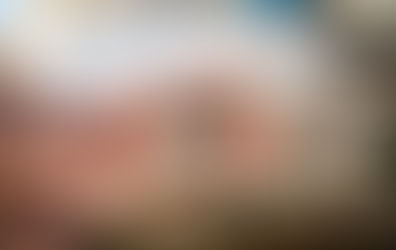
Day 2 of the anti-poaching camp with CABS. Last night we infiltrated one of the hottest spots of bird trapping and I got a taste of what trapping in Cyprus really looks like. Every tree, every bush, every corner of the land has an active electronic decoy and nets carefully placed around them. When you see how meticulous these trappers are, you realise there is no chance whatsoever for a migrating animal to get out of this place alive. Yet, this is one of the main migratory routes from Europe to Africa.
What really shocked me, however, is the level or organisation around this business. This isn’t a bunch of poachers trying to make some extra cash on the side of their jobs. This is an area controlled by ruthless mafia families who have made millions out of this business. Each dish, made of about a dozen birds, is sold for 80-100 euros on the black market, and the value of the bird business as a whole is estimated to be around 10 million euros.
This is big money and wherever big money is involved things can get more than a little hostile. Some of the trappers, the ones that have turned this old tradition into their full time criminal activity, employ armed guards to patrol the trapping gardens all night long, and pick-up trucks to wait in the dark at every corner, guarding all the access roads and roundabouts.
Each operation dismantling nets feels like a dangerous game of hide and seek. Will we manage to turn off the decoy and remove the nets before we get found? At one point last night we were spotted in the middle of a field after removing some nets. The bright white torch of the guard was scanning the field quickly from left to right; we had to stay on the ground and crawl across a field into the bushes for nearly a hundred meters, while the lights from the trappers were frantically looking for us, less than 50 meters away. Once back in the car we were chased off and had to drive at ridiculous speed across the countryside with two cars behind us, threatening to hit us at any point. They were probably just intimidating us, yet, the danger felt very close. When dawn came we hid on the side of the main road that goes into the trapping sites and filmed a line of cars, literally, driving towards the hundreds of nets just over the hill to collect the birds.
I'm still trying to make sense of this whole situation and why this activity is unpunished or even, dare I say, tolerated by the authorities. Trapping is clearly a full time job for many of these people, and a very lucrative one as well, not a hobby and certainly not a dying tradition.

Day 1 of the anti poaching camp in Cyprus. I arrived at midnight at Larnaca airport and was welcomed by a British ex army guy who looked a bit like Bruce Willis and asked me if I paid for good medical insurance because apparently he got shot at the other day and was chased by poachers in pick-up trucks. He also nonchalantly took his phone out of his pocket and showed me pictures of dead hoopoes - which finally got me a little worried. It looks like I have arrived in a bird war zone.
Without wasting any time we get in the car and immediately go on a 6 hour patrol of a transect of countryside. We can’t use any lights nor speak and have to move very slowly and quietly through the arid fields and dry thorny bushes. When a car approaches I get told to lie on the ground and be very still. Quail decoys are playing their deadly sound all around us and our task is to get GPS coordinates of all of them and report them to the police, who will then go and remove them. Or so I am told.
I'm learning as I go along, follow the brief, quietly hushed orders I get given, and try to keep alert while my mind occasionally wonders off pulled in by the beautifully star loaded sky. The moon is but a small slither, barely casting any light on us, and the Milky Way is resembling an ornate embroidery of silver and copper threads against the dark blue sky.
Electronic decoys are the only sounds I can hear. In the distance, their metallic, repetitive sounds spread through the flat dusty land. They work by attracting migrating birds in the night so that at sunrise hunters come in, flush the birds, and shoot them. We get back to our apartments at 6am, where I get a chance to speak properly with one of the camp coordinators. He warns me that what I saw last night was absolutely nothing, and that in the next days he’ll take me into the Sovereign British Areas where most of the massacre is taking place… Time to get the camera out!















